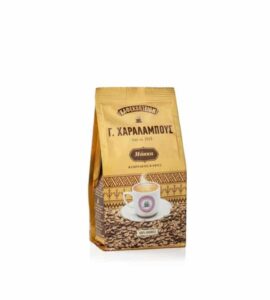Israeli Coffee: A Fusion of Flavors and Cultures
Israeli coffee, also known as “botz” or “Israeli-style coffee,” offers a unique and flavorful experience that reflects the diverse cultural influences found in Israel. With its bold taste, aromatic aroma, and vibrant coffee culture, Israeli coffee represents the fusion of traditions from around the world. In this article, we will explore the world of Israeli coffee, its historical background, brewing methods, and the cultural significance it holds in the Israeli society.
I. Historical Background of Israeli Coffee
- Cultural Melting Pot: Discuss how Israel’s diverse population, comprised of immigrants from various countries, has contributed to the rich coffee culture in the country.
- Influence of Middle Eastern and Mediterranean Traditions: Highlight the impact of Middle Eastern and Mediterranean coffee customs on Israeli coffee, particularly from countries like Yemen, Turkey, and Greece.
- Modern Coffee Culture: Explore the evolution of Israeli coffee culture, from the traditional brewing methods to the rise of specialty coffee shops and innovative brewing techniques.
II. Israeli Coffee Brewing Techniques
- Coffee Bean Selection: Discuss the preference for high-quality Arabica beans and the importance of fresh grinding to maximize the flavor and aroma of Israeli coffee.
- Brewing Equipment: Describe the commonly used methods, such as the “finjan” (small coffee pot) or modern espresso machines, showcasing the versatility of Israeli coffee preparation.
- Variations and Customizations: Explore different Israeli coffee styles, including “café hafuch” (upside-down coffee) or “botz b’karov” (coffee with a shot of espresso), and how they cater to individual taste preferences.
III. Cultural Significance and Coffee Rituals
- Social Connection: Emphasize how Israeli coffee serves as a catalyst for social gatherings and intimate conversations, fostering connections among friends, family, and coworkers.
- Hospitality and Welcoming Guests: Discuss the importance of serving coffee to guests as a sign of warmth and hospitality in Israeli culture, often accompanied by pastries or light snacks.
- Coffee Break Culture: Highlight the role of coffee breaks, known as “shakshuka” breaks, in Israeli workplaces, providing a moment of relaxation and social interaction.
V. Coffee in Modern Israeli Society
- Coffee Education and Specialty Roasters: Highlight the growing interest in specialty coffee and the rise of independent roasters and baristas who promote coffee education and offer unique coffee experiences.
- Sustainable and Ethical Coffee Practices: Discuss the increasing focus on sourcing ethically traded and sustainably grown coffee beans, aligning with the values of environmental consciousness and social responsibility.
- Fusion of Cultures: Explore how Israeli coffee represents a blend of cultural influences, showcasing flavors and brewing techniques from various regions, and contributing to the rich culinary tapestry of the country.
Conclusion: Israeli coffee reflects the diversity and vibrancy of Israeli society, embodying a fusion of cultural traditions and innovative approaches. From the rich and bold flavors to the convivial coffee rituals, Israeli coffee invites you to savor a delightful experience that celebrates the fusion of cultures and the spirit of hospitality. Whether enjoyed in bustling coffee shops or shared among friends






